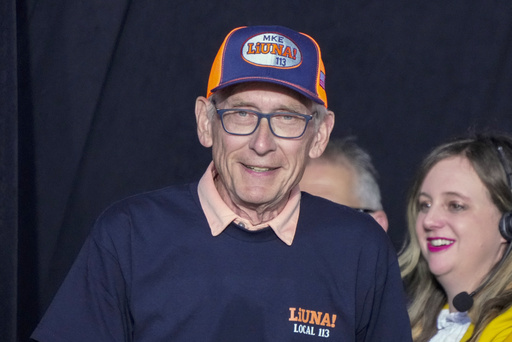MADISON, Wis. — On Wednesday, justices from the Wisconsin Supreme Court expressed serious concerns regarding Governor Tony Evers’ innovative application of his extensive veto authority, which he used in an attempt to ensure a school funding increase lasting for 400 years. They labeled this ambition as “extreme” and “crazy,” yet they also debated the necessary measures to curb such powers.
Justice Jill Karofsky commented during the oral arguments that the apparent limitless nature of these veto powers might be leading to potential problems, asserting that they might be at a pivotal point where they need to reconsider how these powers should be approached in 2024.
This case has emerged as a significant point of contention in the ongoing debate regarding the scope of the Wisconsin governor’s partial veto powers, a dispute that has persisted for decades. The Republican-majority Legislature supports the case, emphasizing that both political parties, over the years, have sought to impose greater restrictions on the extent of veto authority.
The subject of the current legal scrutiny involves a partial veto issued by Evers in 2023, which allowed for an increase in the revenue cap for K-12 public schools by $325 per student per year, intended to last until 2425. Evers effectively altered the original provision that specified the increase for only the 2023-24 and 2024-25 school years by removing certain digits and punctuation to extend the ratified timeframe significantly.
In a filing prior to the court’s discussions, attorneys for Richard Briffault, a legal scholar from Columbia Law School, described Evers’ veto as approaching an absurd level that exceeds reasonable interpretations of legislative intent concerning the use of the partial veto.
This argument gained traction during the oral discussions, with input from Scott Rosenow, who represents Wisconsin Manufacturers & Commerce Litigation Center. He stated that the court should invalidate Evers’ partial veto and maintain that the state constitution prohibits the governor from manipulating numbers or terms to extend durations beyond the original legislative intent.
Justices seemed to concur that a framework for limitations on veto powers was necessary. Justice Brian Hagedorn noted that legal experts often regard the current allowance for such vetoes as nonsensical, suggesting that it enables governors to create new laws independently of legislative approval, which complicates the process.
Justice Rebecca Dallet acknowledged that at first glance, a veto extending to 400 years does seem excessive, yet highlighted the matter needs careful consideration in relation to whether it falls within the governor’s rights. Justice Rebecca Bradley also pointed out that such a capability essentially positions the governor as the most dominant figure in the state legislature.
In defense, Evers’ attorney Colin Roth maintained that the governor was correctly exercising a well-established partial veto option permissible under state law.
The Supreme Court, which has a liberal 4-3 majority, is expected to deliver a written decision in the upcoming months. The partial veto authority in Wisconsin is rooted in a constitutional amendment from 1930, although it has been modified throughout the years due to veto actions from various governors. Significant amendments passed in 1990 and 2008 stripped away certain manipulative veto powers, such as the ability to modify individual letters or words to create new phrases, as well as combining parts of sentences to produce distinct new meanings.
The lawsuit currently in question claims that Evers’ recent veto falls outside the legal framework permitted by the 1990 amendment, aimed at preventing governors from enacting the so-called “Vanna White” veto, which refers to the game show co-host known for her letter-pulling antics.
However, Evers’ camp argues that this prohibition pertains specifically to manipulating individual letters to construct words, not to changing digits to formulate new numerical values. This creative maneuvering within state budget processes is a tactical norm between Wisconsin governors and the Legislature, as lawmakers strive to draft bills that withstand potential reinterpretations through the partial veto.
In previous instances, the Wisconsin Supreme Court, under conservative oversight, overturned three of Evers’ partial vetoes back in 2020, though they did not provide a clear set of guidelines on the boundaries of such vetoes, with only a minority affirming that these partial vetoes should not be utilized to institute new policies.
